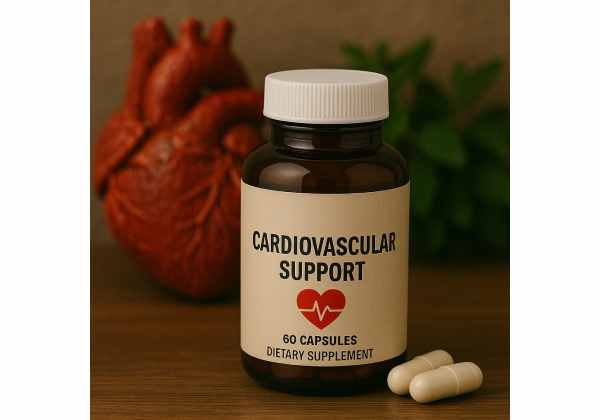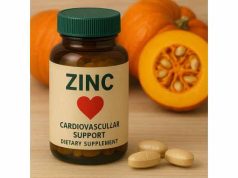
L-Arginine has garnered widespread attention for its potential to promote heart health, foster healthy blood flow, and help address various cardiovascular issues. As a semi-essential amino acid, L-Arginine contributes directly to the body’s nitric oxide production, which in turn supports vasodilation and efficient circulation. Many people turn to L-Arginine for cardiovascular health improvements, including assistance with stable blood pressure and enhanced heart function. In this article, we’ll take a deep dive into why L-Arginine Benefits for Heart Health stand out, how it works in the body, and what scientific evidence says about its efficacy. Let’s begin exploring this essential amino acid’s role in cardiovascular wellness.
Table of Contents
- Essential Profile and Composition of L-Arginine
- Mechanisms by Which L-Arginine Aids the Heart
- Research-Driven Advantages for Vascular and Cardiac Wellness
- Guidelines, Administration, and Potential Risks
- Common Queries Regarding L-Arginine
- References and Sources
Essential Profile and Composition of L-Arginine
L-Arginine is an amino acid that plays a variety of roles in human metabolism—most notably, it serves as a precursor for nitric oxide (NO), a molecule essential for blood vessel dilation. While the human body can synthesize small amounts of L-Arginine, specific demands such as stress, certain health conditions, or intense exercise can raise one’s requirement for this nutrient. Below, we delve into L-Arginine’s biochemical identity, its presence in food, and the reasons many individuals supplement it for cardiovascular health.
Fundamental Characteristics
- Amino Acid Type
L-Arginine is classified as a semi-essential or conditionally essential amino acid. This indicates that, under normal circumstances, the body can produce adequate amounts, yet in times of high physiological demand, dietary sources or supplements become more important. - Crucial Precursor
The single most significant pathway linked to L-Arginine is its role in the synthesis of nitric oxide. Through this pathway, L-Arginine helps cardiovascular function by promoting vasodilation, thus supporting the regulation of blood pressure and circulation. - Protein Building Block
Amino acids combine to form proteins, and L-Arginine is no exception. It contributes to tissue repair, immune system function, and muscle growth. Consequently, many athletes and bodybuilders also incorporate L-Arginine into their diets.
Dietary Sources
- Animal Proteins
L-Arginine is abundant in meats such as turkey, chicken, pork, and beef. Additionally, dairy products like cottage cheese and yogurt can supply moderate amounts of this amino acid. These sources tend to be especially beneficial for those seeking a protein boost. - Plant-Based Options
Vegetarians or vegans often obtain L-Arginine from legumes, including lentils and chickpeas, as well as nuts and seeds like peanuts, walnuts, and pumpkin seeds. Whole grains like oats can also contribute to L-Arginine intake. - Impact of Cooking
L-Arginine content in food can fluctuate slightly depending on how items are prepared. Heat and prolonged cooking times may degrade some nutrients. However, overall, standard cooking methods typically preserve most of the L-Arginine in daily meals.
Supplement Varieties
- Capsules and Tablets
Among the most popular supplementation methods, capsules and tablets are easy to store, measure, and consume. They often come in doses ranging from 500 mg to 2,000 mg of L-Arginine per serving. - Powders
L-Arginine in powder form offers flexibility for those who prefer mixing it into protein shakes, smoothies, or other beverages. This format may be more cost-effective, particularly for individuals requiring higher daily doses. - Combined Formulas
Some supplement products blend L-Arginine with complementary substances like L-Citrulline, vitamins, or herbal extracts. These synergistic combinations often aim to enhance nitric oxide production and, by extension, cardiovascular benefits.
Role in Nitric Oxide Production
- Enzymatic Conversion
Enzymes known as nitric oxide synthases (NOS) convert L-Arginine into nitric oxide. Nitric oxide, in turn, communicates with the smooth muscle cells in blood vessel walls, prompting them to relax and widen. - Balanced Circulation
By assisting in the maintenance of healthy NO levels, L-Arginine ensures that blood pressure remains balanced. Healthy circulation is paramount for delivering oxygen and nutrients throughout the body, especially to cardiac tissue. - Protective Antioxidant Functions
Nitric oxide can also possess antioxidant-like properties. It may help shield cells from oxidative stress, a key factor in the formation of arterial plaques and other cardiovascular complications.
Why L-Arginine for Heart Health?
- Potential Blood Pressure Reduction
Many turn to L-Arginine for heart health improvements because of its effect on endothelial function and subsequent blood vessel relaxation. Evidence suggests that it can play a role in helping control mild to moderate hypertension. - Cholesterol and Lipid Metabolism
Preliminary findings hint that L-Arginine supplementation might positively influence lipid profiles, including modulating LDL (bad) cholesterol. While not a direct cholesterol medication, it may form part of a broader strategy for cardiovascular wellness. - Exercise Performance
Enhanced blood flow may help deliver oxygen to muscle tissue more effectively. This can boost stamina and overall workout capacity—benefits that indirectly promote weight control and heart health through regular physical activity. - Overall Vascular Resilience
Maintaining strong and flexible blood vessels is vital for longevity and disease prevention. L-Arginine, as a cornerstone in nitric oxide production, provides essential support for this aspect of cardiovascular care.
L-Arginine’s distinctive profile and broad availability—from food sources to specialized supplements—make it a popular choice for those looking to optimize their cardiovascular function. As research unfolds, more practitioners and health enthusiasts alike recognize how L-Arginine for Cardiovascular Health can fit into a proactive and balanced wellness regimen.
Mechanisms by Which L-Arginine Aids the Heart
To truly appreciate why L-Arginine helps cardiovascular function, one must look at the underlying physiological processes. The linchpin is nitric oxide, but additional layers also contribute to L-Arginine’s cardiovascular impact. Let’s explore the channels through which this amino acid supports the heart and circulatory system.
1. Nitric Oxide Synthesis and Endothelial Health
- Role of Nitric Oxide (NO)
Often referred to as a “signaling molecule,” NO is crucial in managing vascular tone, or the degree to which blood vessels constrict or dilate. A deficiency in nitric oxide can lead to persistently tightened vessels, placing extra stress on the heart. - Endothelial Cell Support
The endothelium is a thin membrane lining the inside of blood vessels. When L-Arginine levels are sufficient, endothelial cells can produce optimal amounts of nitric oxide, reducing inflammation and lowering the risk of plaque formation.
2. Vasodilation Effects
- Smooth Muscle Relaxation
Increased NO triggers relaxation of the smooth muscles in artery walls, a process known as vasodilation. This relaxation allows for greater blood flow and helps maintain a stable blood pressure. - Reduced Peripheral Resistance
Peripheral resistance refers to the resistance blood encounters as it travels through smaller vessels. By assisting vessel dilation, L-Arginine helps reduce this resistance, easing the burden placed on the heart.
3. Influence on Blood Pressure Regulation
- Systolic and Diastolic Improvements
Studies focusing on L-Arginine show potential for modest reductions in both systolic (the top number in a blood pressure reading) and diastolic (the bottom number). This impact arises largely through the mechanism of improved blood vessel flexibility. - Interaction with RAAS
The renin-angiotensin-aldosterone system (RAAS) is another major regulator of blood pressure. Although L-Arginine does not directly manipulate RAAS, its contribution to vasodilation can support an environment in which RAAS remains balanced.
4. LDL Cholesterol and Plaque Formation
- Oxidized LDL Concerns
Low-density lipoprotein (LDL) is often labeled “bad cholesterol,” especially when it becomes oxidized. Oxidized LDL can damage arteries, contributing to atherosclerosis. Nitric oxide can combat oxidative stress, reducing the negative impacts on arterial walls. - Supplement Synergy
L-Arginine might work well with other natural or pharmacological agents aimed at lowering cholesterol. For instance, combining L-Arginine with statin therapy under medical supervision could amplify protective effects against plaque buildup.
5. Role in Immune Response and Inflammation
- Modulating Inflammatory Markers
Chronic, low-level inflammation is a known contributor to heart disease. Some research suggests that adequate L-Arginine levels may help modulate inflammatory markers like C-reactive protein (CRP), further protecting cardiac tissues. - Wound Healing and Vascular Recovery
L-Arginine’s involvement in collagen synthesis also ties to tissue repair and wound healing, including the recovery of blood vessels damaged by hypertension or other stressors. This effect can help maintain the elasticity and functionality of arteries.
6. Platelet Function and Clot Formation
- Balancing Clotting Factors
While some platelets are necessary to prevent excessive bleeding, overactive platelet aggregation can provoke arterial blockages. Nitric oxide has an inhibitory effect on platelet adhesion, hinting that a consistent supply of L-Arginine may keep clotting under control. - Maintaining Endothelial Integrity
A healthy endothelium resists platelet aggregation more effectively. By supporting the nitric oxide pathway, L-Arginine fosters an internal environment in which platelets are less likely to stick to vessel walls.
7. Stress and Hormonal Interactions
- Impact of Cortisol
Chronic stress elevates cortisol levels, which can raise blood pressure and disrupt metabolic processes linked to heart disease. Although L-Arginine is not a direct cortisol modulator, improved circulation and oxygen delivery may lessen stress on the body, indirectly influencing cortisol’s effects. - Growth Hormone Release
Some studies suggest that L-Arginine can increase growth hormone release, particularly when taken before exercise or sleep. While this effect primarily interests athletes, growth hormone also plays a role in tissue repair and metabolic balance, indirectly affecting cardiovascular risk factors.
8. Potential Anti-Aging Benefits
- Vascular Aging
As people age, their blood vessels often become stiffer, raising the likelihood of high blood pressure and related cardiac strains. L-Arginine’s capacity to boost nitric oxide levels might help counteract some aspects of vascular aging, though more research is needed to confirm these results. - Cellular Regeneration
By aiding in protein synthesis and healthy blood flow, L-Arginine can encourage nutrient delivery to various tissues. This dynamic supports cellular health and regeneration, both of which are crucial in preserving cardiovascular function over time.
9. Exercise and Performance Boost
- Enhanced Oxygen Delivery
Better vasodilation leads to improved oxygen transport. For those engaged in aerobic or resistance training, a well-oxygenated muscle can delay fatigue, helping them maintain consistent exercise routines—a cornerstone of heart health. - Reduced Lactate Accumulation
In some cases, L-Arginine supplementation has been linked to decreased lactic acid accumulation during intensive workouts. This effect might further facilitate training sessions, indirectly aiding heart health through regular, effective exercise.
10. Synergistic Nutrient Partnerships
- L-Citrulline
L-Citrulline is another amino acid closely related to L-Arginine’s nitric oxide pathway. The body can convert L-Citrulline into L-Arginine, thereby sustaining nitric oxide production. Many nitric oxide-boosting supplements feature a combination of L-Arginine and L-Citrulline to enhance effect. - Antioxidants
Vitamins C and E, among other antioxidants, can protect nitric oxide from rapid breakdown. Pairing L-Arginine with antioxidant-rich foods or supplements may sustain NO levels longer, magnifying the amino acid’s vasodilatory benefits.
From promoting vasodilation and lowering blood pressure to potentially curbing inflammation and platelet aggregation, L-Arginine exerts a multifaceted influence on heart health. Its role in nitric oxide production is central, but additional processes further enrich its contributions to cardiovascular wellness. Through a blend of these various mechanisms, L-Arginine stands out as a robust supplement option for both preventative care and targeted heart support.
Research-Driven Advantages for Vascular and Cardiac Wellness
A growing body of clinical and observational studies highlights the ways L-Arginine benefits for heart health may manifest in real-world applications. While more extensive trials are still needed to refine dosage guidelines and confirm certain claims, existing research offers compelling insights into this amino acid’s role in cardiovascular function.
1. Clinical Trials on Blood Pressure Management
- Systolic and Diastolic Reductions
Multiple studies indicate that L-Arginine supplementation can result in modest yet significant drops in systolic and diastolic pressure. For individuals grappling with prehypertension or mild hypertension, these results suggest potential as a supportive measure alongside lifestyle changes. - Short-Term vs. Long-Term Use
Most positive findings come from short-term interventions (ranging from a few weeks to a few months). Prolonged use requires further investigation to determine if the blood pressure-lowering effects remain consistent or if tolerance develops.
2. Impact on Endothelial Function
- Flow-Mediated Dilation (FMD)
FMD is a commonly used marker to gauge endothelial health. Clinical trials show that L-Arginine supplementation can improve FMD, which translates to more flexible and responsive blood vessels—an integral element in preventing arterial damage. - High-Risk Populations
Some studies zero in on groups with chronic conditions like diabetes or metabolic syndrome. These findings often demonstrate more pronounced gains in endothelial responsiveness, possibly because at-risk populations may have severely reduced nitric oxide availability.
3. Cholesterol and Lipid Regulation
- LDL and HDL Levels
Research on L-Arginine’s direct influence on cholesterol remains somewhat mixed. While some experiments reveal lowered LDL levels, others find modest or insignificant changes. Variables such as dosage, baseline lipid profiles, and concurrent dietary patterns may influence outcomes. - Triglyceride Metabolism
Evidence suggests that L-Arginine could enhance lipid metabolism, though not to the extent of specialized triglyceride-lowering drugs. For those with borderline or mild elevations in triglycerides, L-Arginine may play a supplementary role in restoring normal levels.
4. Cardiovascular Disease Prevention
- Atherosclerosis Plaque Stabilization
By supporting nitric oxide production and lowering oxidative stress, L-Arginine may help stabilize existing plaques and deter new ones from forming. Better plaque stability can significantly reduce the risk of heart attack or stroke. - Reperfusion Injury
Some investigations explore L-Arginine’s capacity to lessen tissue damage following events like heart attacks. Early data show that preserving nitric oxide levels might mitigate reperfusion injury—tissue damage caused when blood supply returns to tissue after a period of ischemia or lack of oxygen.
5. Performance and Cardiac Output
- Exercise Tolerance
A number of studies indicate that participants taking L-Arginine exhibit improved exercise capacity, presumably due to better vasodilation and oxygen delivery. Enhanced cardiac output can lead to higher workout intensity and longer endurance, bolstering cardiovascular resilience. - Recovery and Muscle Fatigue
Faster recovery times and reduced muscle fatigue also appear as recurring themes in L-Arginine research. Improved blood flow and waste removal likely expedite repair processes, allowing more frequent and consistent training—a significant factor in heart health maintenance.
6. Studies on Specific Populations
- Diabetic Patients
- Diabetics often struggle with endothelial dysfunction, making them more susceptible to heart disease. L-Arginine supplementation in these cases might restore some aspects of vascular flexibility, although tight glucose control remains the primary focus.
- Kidney and Liver Conditions
- Chronic kidney or liver disease can disrupt the body’s ability to produce or utilize L-Arginine effectively. Some smaller studies propose that supplementing with L-Arginine could provide a beneficial workaround, enhancing vascular function. But more extensive research is needed.
- Elderly Individuals
- As vascular elasticity declines with age, the elderly may benefit disproportionately from L-Arginine’s nitric oxide-boosting properties. Observational research reveals potential improvements in overall vascular health markers, though large-scale clinical trials are still limited.
7. Conflicting or Limited Evidence
- Underlying Health Conditions
Certain studies fail to show significant cardiovascular improvements with L-Arginine, often pointing to confounding factors like insufficient dosage, small sample sizes, or underlying health conditions that overshadow the supplement’s effects. - Long-Term Efficacy
While short-term benefits are well-documented, data on long-term continuous use remains less conclusive. Some research even suggests that in certain circumstances, excess L-Arginine might become counterproductive, underscoring the importance of balanced supplementation.
8. Combining L-Arginine with Other Therapies
- Medication Synergy
Individuals taking antihypertensive or cholesterol-lowering medications might experience added benefits by introducing L-Arginine, though healthcare supervision is essential. Interactions and dosage recalibrations must be carefully managed. - Lifestyle Interventions
L-Arginine supplementation typically shows the best outcomes when paired with a heart-healthy lifestyle. Exercise, nutrient-rich diets, and effective stress management complement the vasodilatory and antioxidant facets of L-Arginine.
9. Ongoing Research Directions
- Personalized Nutrition
Future investigations may explore genetic markers that dictate an individual’s responsiveness to L-Arginine. Personalized supplementation could optimize outcomes, particularly for those with unique metabolic needs. - Novel Delivery Methods
Scientists are examining advanced formulations, like sustained-release L-Arginine or liposomal carriers, aiming to improve absorption and maintain stable amino acid levels over longer periods. - Comparisons with L-Citrulline
Additional studies comparing L-Arginine to L-Citrulline will help clarify which amino acid is more effective at elevating nitric oxide in different contexts. This information could refine protocols for both athletic performance and cardiovascular support.
Overall, while L-Arginine’s complete therapeutic picture is still emerging, current evidence strongly suggests a noteworthy role in enhancing vascular function, reducing mild blood pressure elevations, and potentially stabilizing arterial plaques. Whether used as a stand-alone supplement or combined with standard treatments, L-Arginine for cardiovascular health appears to be both promising and versatile—though personalization and medical guidance remain key.
Guidelines, Administration, and Potential Risks
For those intrigued by L-Arginine’s heart-supportive properties, understanding how to incorporate it safely and effectively into a daily regimen is paramount. From dosage insights to potential drug interactions, the following sections detail best practices and cautions.
1. Typical Dosage Recommendations
- Moderate Daily Intake
Many studies utilize dosages ranging between 2,000 mg and 6,000 mg (2–6 grams) of L-Arginine per day. Some clinical trials even test doses up to 8 or 10 grams, but these higher amounts should only be pursued under professional supervision. - Splitting Doses
Because L-Arginine metabolizes relatively quickly, dividing the daily intake into two or three smaller doses may sustain nitric oxide levels more consistently. For instance, individuals might take one dose in the morning and another before bedtime.
2. Best Practices for Supplement Timing
- Empty Stomach vs. With Meals
Although some prefer to take L-Arginine on an empty stomach for potentially better absorption, others find that taking it with meals reduces gastrointestinal discomfort. Experimenting with timing can help tailor the approach to one’s personal comfort. - Pre-Workout Strategy
Many fitness enthusiasts consume L-Arginine roughly 30–45 minutes before exercise. The rationale is that improved vasodilation could benefit physical performance by enhancing blood flow to working muscles.
3. Factors Influencing Dosage
- Body Weight
Heavier individuals or those with significant muscle mass might require slightly higher doses to achieve the same results. However, adjusting dosages should involve professional input to avoid overconsumption. - Health Status
Certain medical conditions—especially liver, kidney, or cardiovascular disorders—may influence how the body processes L-Arginine. People with these conditions should consult a healthcare professional before drastically changing their supplement regimen. - Concurrent Medications
Blood pressure medications, anticoagulants, or diabetes drugs might interact with L-Arginine. Monitoring is critical to ensure optimal synergy and prevent adverse effects such as hypotension or excessive bleeding risk.
4. Potential Side Effects
- Gastrointestinal Upset
Common mild issues include bloating, diarrhea, or stomach cramps. Reducing the dosage or taking L-Arginine with food often alleviates these problems. - Allergic Reactions
Though rare, allergic responses such as rash or itching may occur. If symptoms persist or worsen, discontinuing use and consulting a medical professional is advised. - Low Blood Pressure
Because L-Arginine can support vasodilation, it might lead to excessively low blood pressure in some users, particularly those already on antihypertensive medications. Regular blood pressure checks can mitigate this risk.
5. Interactions with Drugs and Supplements
- Nitrates
- Pharmaceuticals like nitroglycerin function similarly to L-Arginine in their vasodilatory effects. Combining them could amplify blood-pressure-lowering outcomes, necessitating close monitoring.
- ED Medications
- Erectile dysfunction drugs like sildenafil also involve nitric oxide pathways. Taking L-Arginine alongside these medications can potentially cause an unwanted drop in blood pressure.
- Anticoagulants
- While moderate doses of L-Arginine are unlikely to drastically affect blood clotting, concurrent use with blood thinners (e.g., warfarin, heparin) might require extra vigilance to avert bleeding complications.
- Citrulline and Other Amino Acids
- L-Citrulline is a commonly stacked supplement with L-Arginine. Though generally safe, going overboard with multiple nitric oxide boosters could be counterproductive and might require dosage adjustments.
6. Targeted Usage Scenarios
- Mild Hypertension
Individuals with borderline high blood pressure might add L-Arginine to their plan, alongside diet, exercise, and other heart-healthy practices. Healthcare approval ensures that the approach complements existing treatments. - Athletic Performance
Athletes and fitness buffs may use L-Arginine to bolster exercise capacity and expedite recovery. However, doping regulations vary among sports organizations, so verifying compliance is prudent. - Recovery Post-Injury or Surgery
Because L-Arginine can aid tissue repair, some medical professionals incorporate it into nutritional programs for patients recovering from injuries or surgeries. These instances typically involve guided and temporary supplementation.
7. Who Should Exercise Caution?
- Chronic Illness Patients
- People with severe heart disease, kidney or liver dysfunction, or diabetes must consult specialists to fine-tune dosage. Individual responses vary widely in these groups.
- Pregnant or Breastfeeding Women
- While L-Arginine is naturally present in foods, high-dose supplementation in pregnancy or lactation warrants caution due to insufficient data. Medical advice is essential.
- Children and Adolescents
- Growing bodies have specific nutritional needs. While L-Arginine can be used in certain pediatric contexts (e.g., certain metabolic disorders), it must be strictly overseen by healthcare professionals.
8. Quality and Formulations
- Reputable Brands
Opt for supplements that undergo third-party testing for purity and potency. Look for seals from organizations like NSF International or ConsumerLab to confirm product authenticity and safety. - Additives and Fillers
Check labels for unnecessary additives like artificial colors, flavors, or sweeteners. A high-quality L-Arginine product typically features a straightforward ingredient list. - Storage Tips
Store supplements in a cool, dry environment, away from direct sunlight or extreme temperatures. Proper storage preserves the amino acid’s effectiveness.
9. Integrating L-Arginine into a Heart-Healthy Lifestyle
- Dietary Alignment
Combining L-Arginine supplementation with nutrient-dense foods, such as lean proteins, whole grains, and antioxidant-rich fruits and vegetables, ensures a well-rounded approach to heart health. - Exercise and Stress Reduction
Cardio workouts, strength training, and relaxation practices like yoga or meditation can complement the vasodilatory effect of L-Arginine. Reduced stress is essential for maintaining stable blood pressure and balanced hormone levels. - Routine Monitoring
Regular check-ups, including blood pressure monitoring and lab tests for lipid profiles or blood sugar levels, are recommended. This consistent tracking can confirm that L-Arginine is yielding positive results and not clashing with other health interventions.
While L-Arginine is a valuable tool in many cardiovascular support regimens, it’s not a universal cure-all. A measured approach—guided by awareness of dosage, potential interactions, and individual health conditions—ensures that users can harness its benefits while minimizing risks. By integrating L-Arginine into an overall strategy of balanced nutrition, regular exercise, and medical oversight, individuals can pave the way for sustained heart health improvements.
Common Queries Regarding L-Arginine
Is L-Arginine safe to use for heart health over the long term?
L-Arginine can be safe for extended use at moderate doses, but it’s wise to discuss plans with a healthcare provider. Regular check-ups help ensure you’re benefiting from stable blood pressure and cholesterol management without risking potential interactions or adverse effects.
Can I take L-Arginine alongside prescription blood pressure medications?
Yes, but supervision is vital. L-Arginine may further lower blood pressure, possibly leading to dizziness or other symptoms if combined with antihypertensive drugs. Consult a doctor for tailored dosing and regular monitoring to avoid excessive drops in blood pressure.
Should I choose L-Arginine or L-Citrulline for cardiovascular support?
Both amino acids boost nitric oxide levels, improving circulation. Some evidence suggests L-Citrulline might elevate L-Arginine levels more efficiently. Many users take them together, but personal response varies. Experimentation and professional guidance can help determine the best approach.
What’s the best time of day to take L-Arginine supplements?
It varies by individual. Some prefer taking it before workouts for improved performance, while others benefit from splitting doses between morning and evening. Start with a simple schedule and adjust timing based on how your body responds.
Does L-Arginine aid sexual function in addition to heart health?
Yes, improved blood flow from nitric oxide production may support erectile function and overall sexual health. Men with mild issues often find L-Arginine beneficial. However, those with significant problems should seek medical advice for a complete treatment plan.
References and Sources
- Böger, R. H. (2007). The Pharmacology of L-Arginine. Journal of Cardiovascular Pharmacology and Therapeutics, 12(1), 1–18.
- Explores how L-Arginine influences the production of nitric oxide and its subsequent impact on cardiovascular health.
- Luiking, Y. C., et al. (2012). Dietary Arginine Intake in Relation to Cardiovascular Risk Factors. British Journal of Nutrition, 108(S2), S56–S64.
- Reviews L-Arginine’s role in daily diet and potential connections to risk factors like high blood pressure.
- Monti, L. D., et al. (2012). L-Arginine and Endothelial Function: Implications for Cardiovascular Disease. Frontiers in Bioscience, 4, 305–319.
- Emphasizes the crucial role L-Arginine plays in maintaining healthy endothelium and vessel elasticity.
- Preli, R. B., et al. (2002). Clinical Evidence for the Role of L-Arginine in the Treatment of Cardiovascular Diseases. Current Opinion in Pharmacology, 2(2), 108–113.
- Reviews various clinical scenarios where L-Arginine supplementation may prove beneficial to patients with cardiac conditions.
- Dong, J. Y., Qin, L. Q., & Zhang, Z. (2011). Effect of Oral L-Arginine Supplementation on Blood Pressure. American Heart Journal, 162(5), 959–965.
- Meta-analysis illustrating how oral L-Arginine affects blood pressure parameters in both healthy and hypertensive subjects.
- Wu, G., & Morris Jr., S. M. (1998). Arginine Metabolism: Nitric Oxide and Beyond. Biochemical Journal, 336(1), 1–17.
- Discusses how L-Arginine is metabolized in the body, delving into the nitric oxide pathway and other critical biochemical processes.
Disclaimer:
This article is for educational purposes only and does not replace professional medical advice. Always consult a qualified healthcare provider before beginning or modifying any supplement regimen, especially if you have existing medical conditions or are on prescription medications.
If you found this information valuable, please share it on Facebook, X (formerly Twitter), or any other platform you prefer. Spread the word about L-Arginine’s heart-health benefits and stay connected with us on social media for more insightful updates!






